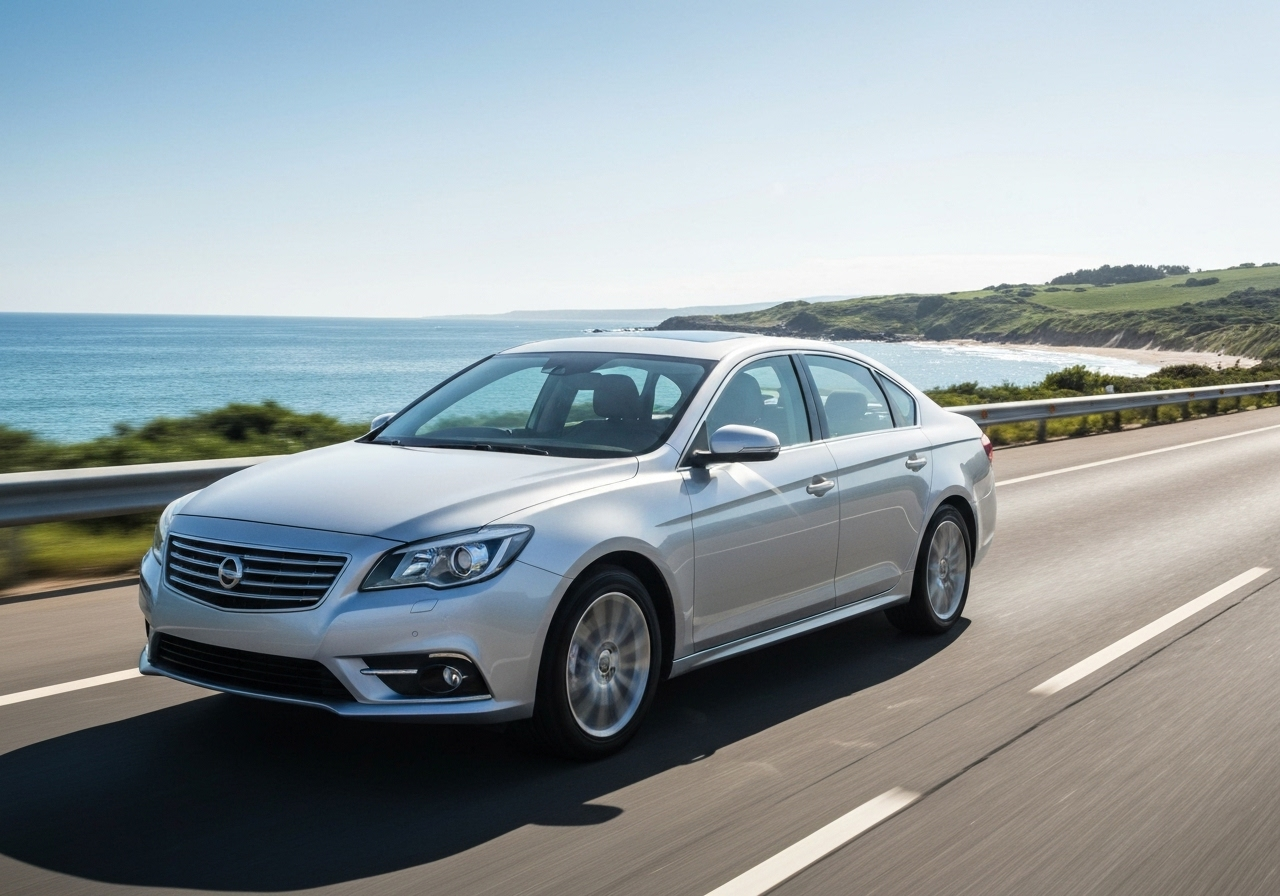Understanding Auto Insurance: Your Essential Guide
Navigating the world of auto insurance can seem complex, but understanding its fundamentals is crucial for protecting yourself and your assets on the road. Auto insurance, a contract between you and an insurance company, provides essential financial protection against unforeseen events. It typically covers property damage, liability for injuries or damage to others, and medical expenses. In almost every U.S. state, carrying some form of auto insurance is a legal requirement. At auto insurance Beach Insurance LLC, we aim to clarify these essentials so you can make informed decisions about your coverage.
Core Auto Insurance Coverages Explained: Liability, Collision, and Comprehensive
A standard auto insurance policy comprises several key coverages, each serving a distinct purpose. Understanding these will help you tailor a policy that meets your specific needs.
Liability Coverage
Liability insurance is often the most critical component, as it covers your legal responsibility for injuries or property damage you cause to others in an accident. It typically comes in two parts:
- Bodily Injury Liability: This covers medical expenses, lost wages, and pain and suffering for individuals injured in an accident where you are at fault. Many states have minimum requirements for this coverage.
- Property Damage Liability: This pays for damage your vehicle causes to another person’s property, which can include other vehicles, fences, buildings, or utility poles.
Many experts recommend purchasing more than your state’s minimum liability limits, as the costs of a serious accident can quickly exceed basic coverage, leaving you responsible for the difference. For instance, if your liability limits are 25/50/10, it translates to $25,000 bodily injury per person, $50,000 bodily injury per accident, and $10,000 for property damage. As highlighted by Bankrate, exceeding these limits would result in out-of-pocket expenses for the policyholder.
Collision Coverage
Collision insurance pays for damage to your own car resulting from a collision with another vehicle or object, or if your car rolls over. This coverage is usually optional unless required by a lender if you have a car loan or lease. For example, if you slide on ice and hit a guardrail, collision coverage would help repair your vehicle. As noted by the Insurance Information Institute (III), even if you are at fault, collision coverage reimburses you for repair costs (minus your deductible).
Comprehensive Coverage
Comprehensive insurance covers damage to your car from almost all other causes not involving a collision with another vehicle. This includes events like theft, fire, vandalism, natural disasters (e.g., hail, flood, windstorms), and contact with animals. It often covers broken glass, such as a cracked windshield. This coverage is also typically optional but may be required by lenders. According to Forbes Advisor, 80% of drivers with auto insurance buy comprehensive coverage, demonstrating its perceived value.
Beyond the Basics: Uninsured Motorist, PIP, and Other Important Protections
While liability, collision, and comprehensive form the foundation, other coverages offer crucial protection against specific risks.
- Uninsured/Underinsured Motorist (UM/UIM) Coverage: This protects you if you’re hit by a driver who either doesn’t have insurance (uninsured) or whose insurance isn’t enough to cover your damages (underinsured). UM/UIM typically covers bodily injury, and in some states, property damage. This is vital, as up to 30% of drivers may be uninsured, depending on the state, as discussed by WalletHub.
- Medical Payments (MedPay) or Personal Injury Protection (PIP): These cover medical expenses for you and your passengers after an accident, regardless of who was at fault. PIP can also extend to cover lost wages and other related expenses. While optional in some states, many recommend it for broader financial protection.
- Gap Insurance: If you lease or finance your vehicle, collision and comprehensive coverage usually only cover the market value of your car. Since new cars depreciate quickly, there can be a “gap” between what you owe and what your insurance pays if your car is totaled or stolen. Gap insurance covers this difference.
What Factors Influence Your Auto Insurance Premiums?
Many variables contribute to the cost of your auto insurance. Understanding these factors can help you identify areas for potential savings.
- Your Driving Record: A clean driving record with no accidents or traffic violations is one of the most significant factors in securing lower rates. Conversely, a history of speeding tickets, at-fault accidents, or DUIs can substantially increase your premiums, as detailed by Experian.
- Location: Premiums vary significantly by state, city, and even ZIP code. Urban areas often have higher rates due to increased risks of accidents, theft, and vandalism.
- Age and Gender: Younger, less experienced drivers (especially those under 25) typically face higher premiums due to higher accident rates. Women statistically tend to have fewer and less severe accidents than men, often resulting in lower rates in states where gender is a rating factor.
- Vehicle Type: The make, model, year, and safety features of your car directly impact premiums. More expensive vehicles, those popular with thieves, or those with costly repair parts generally cost more to insure.
- Coverage Type and Amount: Opting for higher liability limits or adding optional coverages like comprehensive and collision will increase your premium.
- Deductible Amount: Choosing a higher deductible (the amount you pay out-of-pocket before your insurance covers a claim) typically lowers your premium.
- Credit History: In most states, your credit-based insurance score influences your rates. A good score often correlates with lower premiums, as noted by the III.
- Annual Mileage and Vehicle Usage: Driving fewer miles generally leads to lower premiums, as less time on the road means lower risk.
- Claims History: Frequent claims, even if not at fault in some states, can increase your rates as insurers perceive a higher risk.
Smart Strategies to Save on Your Auto Insurance Policy
Reducing your auto insurance costs is achievable with a proactive approach. Beach Insurance LLC wants to empower you to find significant savings.
Here are effective strategies to lower your premiums:
- Shop Around and Compare Quotes: Insurance companies use different underwriting methods, leading to varied premiums for the same coverage. Obtain quotes from multiple providers to ensure you’re getting the best rate. Many online tools and independent agents can assist with this comparison.
- Increase Your Deductibles: A higher deductible means you pay more out-of-pocket in the event of a claim, but it can significantly lower your annual premiums. Ensure your emergency fund can cover the chosen deductible. As advised by Consumer Reports, increasing your deductible from $500 to $1,000 can reduce collision and comprehensive costs by 15% to 30%.
- Re-evaluate Coverage for Older Vehicles: For cars with lower market value, the cost of comprehensive and collision coverage may not be financially sensible. Compare the premium to your car’s actual cash value to decide if liability-only coverage is more economical, as suggested by III.
- Look for Discounts: Inquire with your insurer about various discounts you might qualify for, such as:
- Multi-policy (bundling) discounts: Combining auto insurance with homeowners or renters insurance, for example, can lead to substantial savings.
- Safe driver discounts: Maintaining a clean driving record or completing a defensive driving course can earn you discounts.
- Good student discounts: Many insurers offer lower rates for high school or college students with good academic standing.
- Low mileage discounts: If you drive less than the average number of miles annually, you may qualify for a reduction.
- Anti-theft device discounts: Vehicles equipped with certain security features can reduce your premium.
- Payment discounts: Paying your annual premium in full or setting up automatic payments can also result in small savings.
- Maintain a Good Credit Record: In most states, a strong credit-based insurance score can lead to lower rates. Paying bills on time and managing debt responsibly contributes to a better score.
- Consider Usage-Based Insurance (UBI): If you’re comfortable with your driving habits being monitored via an app or device, UBI programs can offer personalized discounts based on safe driving behavior and low mileage.
- Review Your Policy Annually: Life changes—like getting married, moving, or changing your commute—can affect your insurance needs and rates. Regularly reviewing your policy ensures it remains aligned with your current situation and helps you catch any outdated information that might be increasing your premium.
For more detailed strategies on how to lower your car insurance premiums, check out our guide on How to Save Big on Car Insurance.
Your Trusted Partner for auto insurance Beach Insurance LLC
At Beach Insurance LLC, we understand that finding the right auto insurance coverage involves balancing comprehensive protection with affordable rates. Our team of experienced agents is dedicated to serving communities across the Carolinas, including Surfside Beach, Myrtle Beach, North Myrtle Beach, Ocean Isle Beach, Pawleys Island, Summerville, Spartanburg, Kiawah Island, Fountain Inn, Mauldin, North Charleston, Clemson, Little River, Concord, Hanahan, Cornelius, Conway, Huntersville, and Ballantyne. We are committed to providing personalized personal insurance solutions that best fit your unique situation.
Our goal is to research coverages based on your individual needs and propose suitable company products. We pride ourselves on building long-term relationships by offering expert advice and guidance, prioritizing your security and peace of mind on the road.
Navigating Auto Insurance Claims and Policy Management with Confidence
Dealing with an auto insurance claim can be a stressful experience, but understanding the process can alleviate much of the anxiety. At Beach Insurance LLC, we guide our clients through each step, ensuring clarity and support.
The Claims Process
When an incident occurs:
- Report the Loss: Contact your insurance company or agent as soon as possible. Most insurers have deadlines for reporting claims. Be prepared with your insurance information, current contact details, and a preliminary list of damaged property. You can refer to our Report a Claim page for initial steps.
- Document Everything: Before removing any debris or belongings, take photos or videos and make a detailed list of damages and lost items. Save damaged items for your insurer’s inspection if possible. Keep records of all receipts for temporary repairs. This thorough documentation is crucial for an effective claim, as highlighted by the NAIC.
- Claims Adjuster Assessment: Your insurance provider will assign a claims adjuster to assess the damage to your property. They will document the loss to determine your claim settlement amount.
- Repair or Replacement: Once the claim amount is settled, you can proceed with repairs or replacement. If your car is declared a total loss, you may negotiate with your company to purchase your vehicle for its salvage value.
Policy Management
Beyond claims, proactive policy management helps ensure you always have the right coverage.
- Understand Your Policy: Your auto insurance policy is a legal contract outlining your rights and responsibilities. Familiarize yourself with the declarations page, insuring agreement, definitions, coverage sections, exclusions, and endorsements. Tools like Bankrate’s guide on reading your policy can be invaluable.
- Regular Review: Periodically review your policy to ensure all information is accurate and that your coverage still meets your needs. Life changes such as adding or removing a vehicle, changing drivers, or altering your annual mileage can impact your premium.
- Beware of Fraud: Especially after a disaster, be cautious of aggressive contractors. Never feel pressured to sign contracts or pay upfront before services are complete. Your insurer may have a list of suggested contractors.
Secure Your Journey: Get Tailored Auto Insurance Coverage
Driving with confidence comes from knowing you have the right auto insurance coverage tailored to your specific needs. As discussed, auto insurance policies are designed to protect you from financial losses arising from accidents, theft, and other unforeseen events. From essential liability to comprehensive, collision, and specialized protections like uninsured motorist coverage, each component plays a vital role in your overall financial security.
Understanding these coverages, recognizing the factors that influence your premiums, and implementing smart saving strategies are key steps toward securing optimal protection without overpaying. Whether you’re a new driver, managing multiple vehicles, or simply looking to update your policy, being informed allows you to make decisions that best serve your interests.
At Beach Insurance LLC, we are committed to being your trusted partner in this journey. Our expert agents are here to help you navigate policy options, identify eligible discounts, and ensure your coverage is perfectly aligned with your lifestyle and budget. Protect your journey and drive with peace of mind by securing tailored auto insurance Beach Insurance LLC. To explore your options and find the perfect plan, you can easily get a quote today.
Ready to learn more about tailored auto insurance? Contact us today for a personalized quote!






